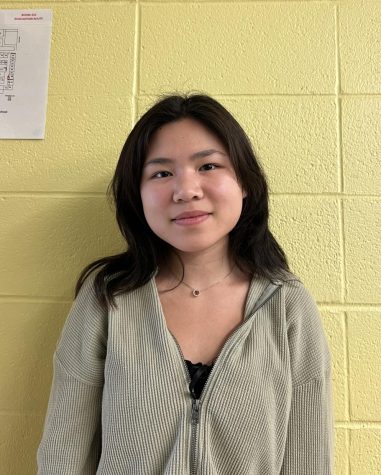Let’s be honest, the last time many high schoolers picked up an IRB (independent reading book) may have been ages ago. Ever since we have been assigned class reading, such as The Grapes of Wrath or Interpreter of Maladies, participating in various extracurriculars, and indulging in social media for entertainment, it seems as though there is an unsubstantial amount of time to read for fun.
I reminisce on middle school days when I spent my leisure time reading dystopian and romance novels–books that didn’t feel like drudgery to crack open and reach the end of. When immersing myself into worlds of whimsical competitions such as that of The Selection, an hour would feel like seconds, contrasting the twenty prolonged minutes it would take to decipher one page of The Scarlet Letter. While I have intermittent hours of free time a day, I (apologetically admit that I) spend a significant amount of those hours on Instagram or Netflix. And I am not the only teenager going through this experience.
Jurnal Publikasi Pendidikan states that “72.9% of surveyed students prefer using technology and social media to reading books.” This is partially because of the rapid dopamine from internet surfing, an activity that doesn’t require a prolonged attention span. Why would teenagers want to read IRBs after lengthy academic passages when they could be scrolling through the vast, amusing content on TikTok? Many teens prefer the latter.
According to PR Newswire, “Half of school-aged children (50%) believe reading books for fun is highly important, however as children get older, they place less importance on reading for fun (64% children ages 6–8 vs. 43% children ages 12–17).” Children and teens are aware that reading is important; the problem is that they struggle to find time or motivation to crack open a book. PR Newswire additionally says, “Nearly half of 6–8-year-olds (46%) say they are frequent readers (reading books five or more days a week), this level declines to 32% of 9–11-year-olds, 21% of 12–14-year-olds, and 15% of 15–17-year-olds.” Clearly, the difference between younger children and older teenagers is stark when it comes to their love for IRBs. As children get older, and as school assignments get more rigorous, they have less time and energy to juggle IRBs.
For my query into IRB, I sought out Kavya Chettur (’25), Kailyn Cho (’25), and Anoushka Chakrabarti (’25)—columnists of The Echo’s series, Triple C’s Book Reviews, which promotes IRB reading—about their reading habits and hobbies.
“As life got busier with school, sports, and clubs, I found myself having less time to indulge in leisurely reading,” Chettur said. “That’s why I’m extremely excited to participate in the Triple C Book Review because I am motivated to explore new books and share my enthusiasm on a platform where I can connect with others who share a similar passion for literature.”
Cho explained that books are used as an escape for many and that they also have the power to broaden one’s thinking. “Books are so important for expanding your perspective and for sharing ideas. Some quotes from books stick with you even years after reading them,” she said.
Each of the members shared her words of advice on how others can bring IRBs back into their lives.
Cho recommends asking a friend or teacher for book recommendations. “Some of my all-time favorite books came from my friends’ first raving about the book. This is another reason why I really love reading because it opens up more doors to be able to talk to different people with a shared interest,” she said.
Chettur adds that the little moments add up (even if you only read for five minutes a day). “Carve out those little pockets of time, no matter how small they may seem,” she said. “Whether it’s on the bus ride home, before bed, or during lunch breaks, snatch those moments and dive into a good book.”
Chakrabarti suggests short, fast-paced books. Especially because of declining attention spans, teens may consume these swift reads happily instead of books that are thicker than their heads. “Reading books that are engaging, easy to read, and not very long can make the task of finishing a book much less daunting,” she said. “It also takes much less time to finish an interesting book than a boring one, especially since a high schooler’s free time is limited.”
All in all, IRBs are a great way to unwind and take a break from screens. Additionally, if you need to take a break from the pressures of schoolwork, reading a book that immerses you in fictitious and exciting stories may help you destress. According to The National Library of New Zealand, “Research shows [that recreational reading] has other far-reaching benefits such as improving literacy, social skills, and health and learning outcomes.”
I hope to organize my schedule to fit new IRBs and encourage others to do the same.












































































































































